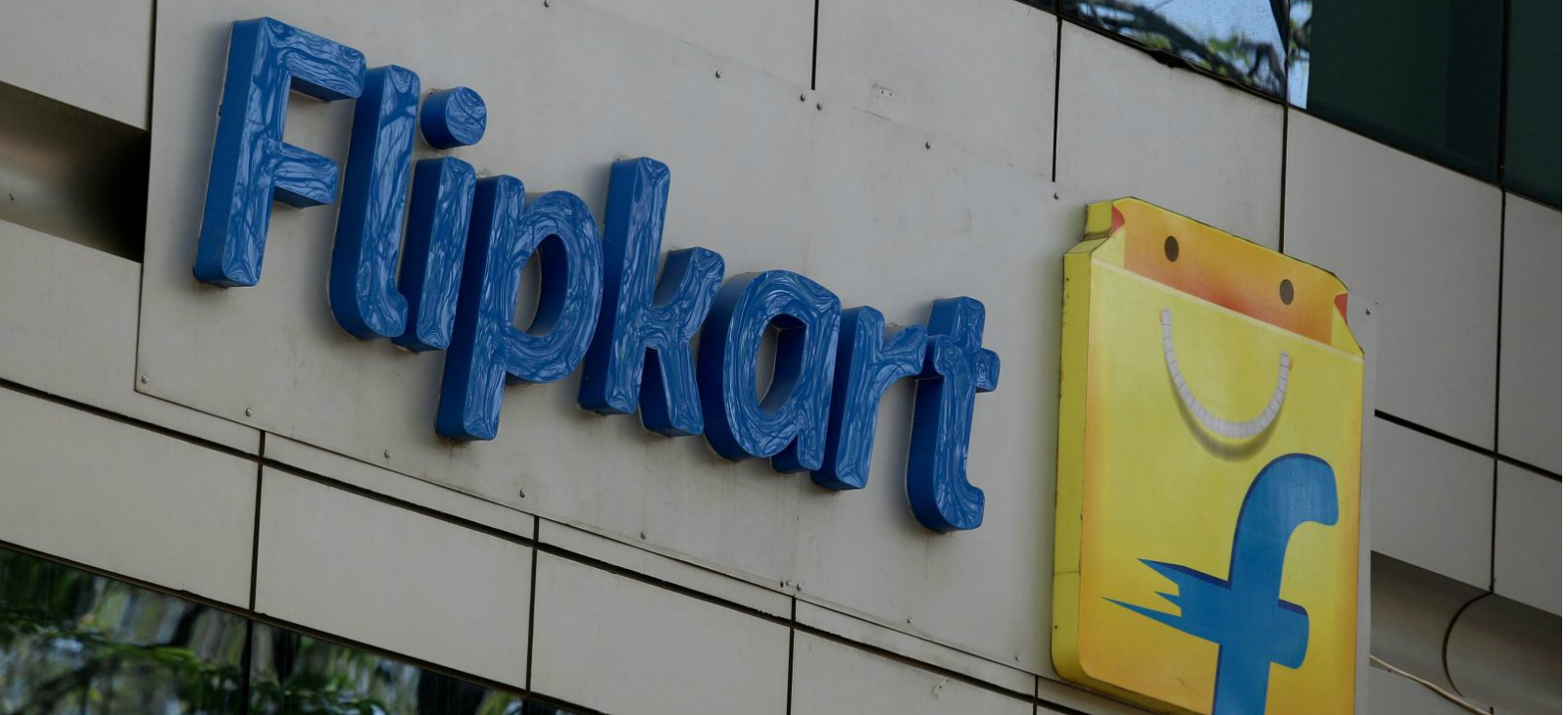News
Flipkart – Walmart Deal: All The Latest Information

Three months ago reports surfaced the international retail giant Walmart was looking to invest in homegrown ecommerce startup Flipkart. While sources suggested the deal may close as soon as March, but new reports hinted Seattle based ecommerce giant Amazon.com was also looking to make a bid for a potential investment in the company. Since then, there has been a continuous back and forth between Walmart and Amazon to finalize a record breaking deal.
Recently, a number of key Flipkart shareholders agreed to sell their stakes in the company to Walmart. However, sources close to the development said SoftBank, which is the largest shareholder in Flipkart, is holding out for a better price. In order to become the largest investor in the Bengaluru based company, Walmart Inc., has already reached an agreement with the New York based investment firm Tiger Global Management, the South African media conglomerate Naspers, the venture capital firm Accel and China’s Tencent Holdings. According to The Economic Times, Sachin Bansal and Binny Bansal may sell a part of their stake in the company as well. However, a new hurdle in the form of the ecommerce firm eBay, may hamper the deal.
Recode reported, Walmart may have to first work out a deal with eBay, a Flipkart investor and partner, in order to buy a majority stake in India’s online shopping site. eBay, which invested close to $ 500 million in Flipkart last year, has a 5% stake in the business and handed over its eBay India operation as a part of the deal. Along with the investment, the San Jose based firm also signed a four year exclusive commercial arrangement to partner with Flipkart. The four year exclusive commercial arrangement gave the merchants who sell on Flipkart access to more than 150 million new customers from eBay, while eBay sellers outside of India got access to a new group of consumers inside the country. In accordance with this agreement, Walmart may not be able to seal merchandise based deals with Flipkart, unless Walmart and eBay come to some agreement. Recode further added, according to one person familiar with the arrangement eBay can also take back control of the eBay India brand name if Flipkart is acquired.
On the other hand, SoftBank has reportedly remained relatively cold to overtures made by Walmart. The Japan based venture firm invested close to $ 2.5 billion in Flipkart last year after the failed merger deal between Flipkart and Snapdeal. According to a report by The Economic Times, SoftBank was offered a $ 10-12 billion valuation to purchase its shares in Flipkart. One of the sources also said, “Discussions with SoftBank are still ongoing. Most of the others have come aboard. In a deal like this, there are always ebbs and flows, but there is a time factor to consider as well.”
Flipkart has slowly grown to become one of the most valued company in the Indian startup ecosystem. With close to 8,000 permanent employees, the company has made at least 10 acquisitions in the 10 years of its existence. The firm managed to establish itself in the ecommerce industry by introducing the “cash on delivery” payment method, one of the biggest factors for its success.
Note: This article will be updated as and when we get further information.
Funding
Dazzl Raises $3.2M Seed Funding Led by OYO’s Ritesh Agarwal for AI Skincare Expansion

Bengaluru, January 13, 2026 Dazzl, the D2C beauty startup revolutionizing AI personalized skincare India, secured $3.2 million in seed funding led by OYO founder Ritesh Agarwal’s venture arm. Co-investors include Snapdeal’s Rohit Bansal and Fireside Ventures, valuing Dazzl at $15 million post-money. Founded in 2024 by IIT alumni Priya Singh and Arjun Mehta, the app uses smartphone scans for custom serums, boasting 50,000+ users and ₹5 crore ARR amid India’s $25 billion beauty market surge.
Ritesh Agarwal praised Dazzl’s tech: “Personalization is beauty’s future, like OYO’s guest model.” Funds target R&D for 100+ skin profiles, Gujarat manufacturing under PLI, Instagram/Nykaa campaigns, and 50 hires. In a 20% YoY growing sector (Redseer 2025), Dazzl edges Mamaearth and Plum with 95% AI precision, 90% natural formulas, ₹499 kits, 65% retention (vs. 40% avg), and viral TikTok traction in 10 cities.
D2C beauty startup Dazzl tackles regulations via FSSAI compliance, eyeing $10B e-commerce beauty by 2028 and MENA exports. Q2 haircare launches and Series A loom, with Agarwal’s backing signaling unicorn potential for sustainable beauty products India. Dazzl blends AI with clean beauty for 500M+ consumers.
News
Google Launches Startup Hub in Hyderabad to Boost India’s Innovation Ecosystem

Google has launched the Google Startup Hub Hyderabad, a major step in strengthening India’s dynamic startup ecosystem. This new initiative aims to empower entrepreneurs, innovators, and developers by giving them access to Google’s global expertise, mentoring programs, and advanced cloud technology. The hub reflects Google’s mission to fuel India’s digital transformation and promote innovation through the Google for Startups program.
Located in the heart of one of India’s top tech cities, the Google Startup Hub in Hyderabad will host mentorship sessions, training workshops, and networking events designed for early-stage startups. Founders will receive Google Cloud credits, expert guidance in AI, product development, and business scaling, and opportunities to collaborate with Google’s global mentors and investors. This ecosystem aims to help Indian startups grow faster and compete globally.
With Hyderabad already home to tech giants like Google, Microsoft, and Amazon, the launch of the Google Startup Hub Hyderabad further cements the city’s position as a leading innovation and technology hub in India. Backed by a strong talent pool and robust infrastructure, this hub is set to become a growth engine for next-generation startups, driving innovation from India to global markets.
News
BMW’s New Logo Debuts Subtly on the All-Electric iX3: A Modern Evolution

BMW quietly debuted its new logo on the all-electric iX3, marking a significant yet understated shift in the brand’s design direction for 2025. The updated emblem retains the classic roundel and Bavarian blue-and-white colors, but sharp-eyed enthusiasts noticed subtle refinements: the inner chrome ring has been removed, dividing lines between blue and white are gone, and the logo now features a contemporary satin matte black background with slimmer “BMW” lettering. These enhancements showcase BMW’s embrace of modern minimalism while reinforcing their commitment to premium aesthetics and the innovative Neue Klasse philosophy for future electric vehicles.
Unlike rival automakers that reveal dramatic logo changes, BMW’s refresh is evolutionary and respectful of tradition. The new badge ditches decorative chrome and blue borders associated with earlier electric models, resulting in a flatter, more digital-friendly design that mirrors recent branding seen in BMW’s digital communications. Appearing first on the iX3’s nose, steering wheel, and hub caps, this updated identity will gradually be adopted across all BMW models—both electric and combustion—signaling a unified brand language for years to come.
BMW’s strategic logo update represents more than just aesthetic reinvention—it underscores the brand’s dedication to future-ready mobility, design continuity, and a premium EV experience. As the new roundel begins rolling out on upcoming BMW vehicles, it stands as a testament to the automaker’s depth of detail and thoughtful evolution, offering subtle distinction for keen observers and affirming BMW’s iconic status in the ever-changing automotive landscape.












J88
November 5, 2025 at 1:25 pm
Đến với J88, bạn sẽ được trải nghiệm dịch vụ cá cược chuyên nghiệp cùng hàng ngàn sự kiện khuyến mãi độc quyền.
MM88
November 7, 2025 at 6:00 am
Khám phá thế giới giải trí trực tuyến đỉnh cao tại MM88, nơi mang đến những trải nghiệm cá cược thể thao và casino sống động.
站群程序
November 8, 2025 at 7:40 pm
搭载智能站群程序,自动化搭建与管理,为SEO项目提供核心驱动力。站群程序
GO88
November 10, 2025 at 9:49 am
Tham gia cộng đồng game thủ tại Go88 để trải nghiệm các trò chơi bài, poker phổ biến nhất hiện nay.
ios超级签
November 11, 2025 at 11:16 pm
苹果签名,苹果超级签平台,ios超级签平台ios超级签苹果企业签,苹果超级签,稳定超级签名
MM88
November 16, 2025 at 6:37 pm
Với giao diện mượt mà và ưu đãi hấp dẫn, MM88 là lựa chọn lý tưởng cho các tín đồ giải trí trực tuyến.
Kuwin
November 22, 2025 at 1:19 pm
kuwin sở hữu kho game đa dạng từ slot đến trò chơi bài đổi thưởng, mang đến cho bạn những giây phút giải trí tuyệt vời.
chanced casino
December 19, 2025 at 1:49 am
chanced casino chanced casino
starz
December 25, 2025 at 5:26 am
https://t.me/s/Officials_888STARZ
7kCasino
December 31, 2025 at 11:03 am
http://www.google.by/url?q=https://t.me/officials_7k/811